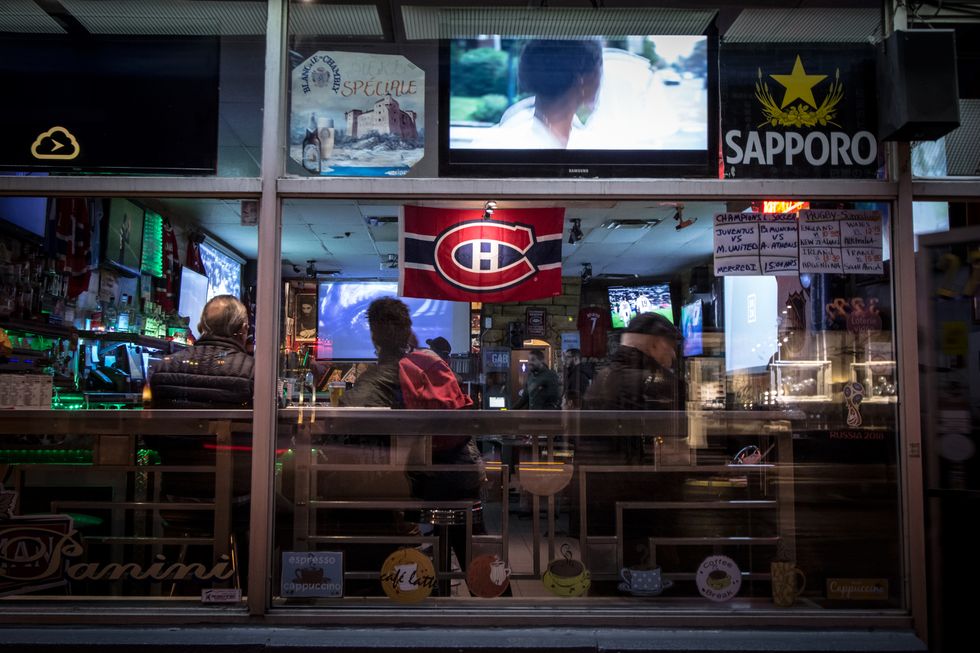Health Officials Have Released New Projections For COVID-19 In Quebec
On October 16, the Institut national de santé publique du Québec (INSPQ) released new data projecting different ways COVID-19 could evolve in the province during the second wave — and it looks like Quebecers need to do more to stop coronavirus cases from rising.
The report presents three possible scenarios: the first, called Scenario 0 (S0), is a hypothetical analysis of what could have occurred if the government had not put additional measures in place in red zones for the month of October.
The second scenario, called Scenario 1 (S1), makes projections based on the current situation with the red-zone restrictions presently in place.
The third scenario (S3) projects what could happen if we reduced our physical contacts by 25% in addition to current restrictions.
Editor's Choice: Here Are All Of Quebec's Rules For Halloween This Year
What if there was no partial-lockdown in October?
According to the report, if no red-zone restrictions were implemented in October, "new hospitalizations and deaths would have exceeded the rates achieved in the first wave before the holidays."
By November, the number of new hospitalizations would exceed the first-wave record. And, by December, the number of new deaths would exceed the first-wave record, it says.
New cases in Greater Montreal could have reached approximately 3,600 per day by November, and the death rate could have reached around 80 new deaths per day by the end of December, the data shows.
Since measures have been put in place, the province's death toll has remained under 25 new deaths per day. Counts have remained under 1,400 new cases per day in Quebec, but the data warns they could continue to rise if precautions are not taken.
What if we carry on with current measures?
Even with the measures put in place by the government until October 28, S1 graphs show that — despite a "significant flattening of the curve" — cases, hospitalizations, and deaths will continue to rise, albeit more slowly.
New cases in Greater Montreal could reach 1,600 or more per day by late December, early January.
Deaths, however, are projected to remain under 20 per day, but the data warns they could begin increasing toward the end of the year.
What if we reduce social contacts by 25 percent?
Quebec Health Minister Christian Dubé said in a press conference on October 16 that this scenario — which involves keeping current measures plus reducing physical contacts by 25% — seems like the "ideal" method of breaking the second wave.
And according to the report, this could "stabilize" the pandemic.
Though the virus would not be completely eliminated by January, hospitalizations, deaths and cases could plateau or decline by the end of the year.
By January, new cases in Greater Montreal could be less than half of the projections based on current measures.
Dubé explained that pre-COVID-19, Quebecers had approximately seven to eight social contacts per day. With current measures, social contacts have been reduced to five and six contacts per day.
According to INSPQ, removing one of four or five social contacts from your daily life would make a major difference in breaking the second wave.


